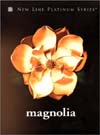Even before Mel Gibson grabbed hearts and headlines with The Passion of The Christ, Christians were finding a new fascination with the spiritual significance they’re encountering at the multiplex. Every month sees a new film-and-faith book hit the shelves, film clips are showing up in Sunday sermons like never before, and believers gather in study groups where the VCR and DVD player are almost as important to the proceedings as Bible or concordance. Jesus “spake not except in parables,” and the spiritual impact of story didn’t end with Christ.
The folks at Arts & Faith, an online discussion group comprised of film critics—including Christianity Today Movies critics Jeffrey Overstreet, Peter T. Chattaway and myself—and other movie buffs have been carrying on a lively conversation about spirituality and film for years. Recently, the participants forged a terrifically diverse and intriguing list of 100 Spiritually Significant Films—an incomparable resource for anyone interested in exploring transcendent themes in the movies.
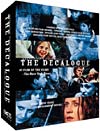
During our voting process, two films clearly rose to the top, tying for first place: Dekalog, a series of ten one-hour films created by Poland’s Krzysztof Kieslowski, dealing indirectly with the Ten Commandments, and Robert Duvall’s personal vision film, The Apostle. Arts & Faith had an in-depth discussion of Dekalog, a highly artistic and ethically complex series; in fact, the A&F board got started with a discussion of another series of films by Kieslowski, the Three Colors trilogy, which also found its way into the top 100.
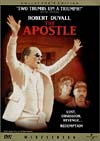
The Apostle was written, directed and personally financed by Duvall, who also plays the title character, a troubled Southern evangelist who is not only a deeply flawed human being, but also a penitent man with an extraordinary drive to share the gospel. Another extraordinary performance by Duvall also found its way quickly onto the list: Tender Mercies, writer Horton Foote’s masterpiece of understatement about the faith journey of a recovering alcoholic.
Other films that were among the A&F favorites included P.T. Anderson’s multi-character masterpiece Magnolia and Pier Paolo Pasolini’s The Gospel According to St. Matthew, a sparse and poverty-stricken account of Christ’s life considered by most Jesus movie aficionados to be the greatest of its kind. The Passion of The Christ also made the list, as did the surprisingly rich The Miracle Maker (an animated life of Christ), Zeffirelli’s Jesus of Nazareth miniseries, the more controversial Jesus of Montreal and The Last Temptation of Christ, and the not-quite-Jesus-film from the Monty Python gang, Life of Brian.
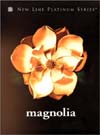
The unflinching portrayal of spiritually lost characters in Magnolia may scandalize some believers, but there’s no denying it’s one of the most often cited favorites among Christian film buffs, with its wonderfully human (and profoundly admirable) Christian cop, its intricate moral and relational complications, and its undeniable acts of divine intervention. Punch-Drunk Love, a less obviously religious film by the same director, also finds its way onto the list, a prime example of a story without explicit religious elements which nonetheless holds great appeal for Christian viewers, with its grace-filled portrait of damaged human beings yearning toward redemptive love.
Another relative no-brainer for the A&F list was the exquisite Babette’s Feast, the story of a cook who spends all she has to bless her employers—and their entire village—with a remarkable feast that reawakens their spirits like the sacrificial fragrance of the jar of perfume poured out over Christ’s feet.
Rounding out the films which topped our voting are Dead Man Walking, the emotionally devastating portrait of Sister Helen Prejean’s compassion for a death row prisoner; Breaking the Waves, a highly controversial story of sacrificial love from Lars von Trier (whose recent Dogville is also featured on the list); Crimes & Misdemeanors, the deeply moral Woody Allen film; Diary of a Country Priest, an artistically demanding film often considered the crowning achievement of the masterful Catholic director Robert Bresson; and The Mission, the widely-admired and heart-rending story of two men who choose different ways of serving Christ on a South American Jesuit mission in the 18th century. Robert Bolt, screenwriter for The Mission, is also responsible for another film on the list, A Man for All Seasons.
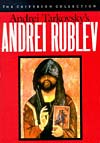
The director with the most films on the list is Andrei Tarkovsky, Russia’s great Cold War director whose Christian faith not only found subtextual expression in his movies but also placed him in constant struggle with Soviet authorities. Some consider Andrei Rublev the ultimate statement on the place of the Christian artist in a fallen world; The Sacrifice and The Mirror may be the most obscure and difficult pieces on this list, and the science fiction films Stalker and Solaris some of the most unusual, but all are acknowledged masterpieces.
Australian director Peter Weir placed four films in the Top 100. Fearless is about a man whose life is transformed when he miraculously survives death in a terrible airplane crash; Witness is the story of a Philadelphia cop whose violent life is called into question when he takes refuge among the Amish; and The Truman Show is Jim Carrey’s hit about a man whose entire life is filmed and broadcast on television. The Year of Living Dangerously is less well-known than the others, but may be the most spiritually significant Weir film of them all, with Linda Hunt’s Oscar-nominated portrayal of outsider Billy Kwan giving us one of the most extraordinary Christians ever portrayed in film, obsessed with John the Baptist’s question, “What then shall we do?”
The list also includes a number of hidden treasures, such as Close-Up, an Iranian quasi-documentary which begins oddly and simply but finishes by undermining our preconceptions about justice and mercy, truth and deception, restitution and reconciliation in this Muslim country; from Finland, The Man Without a Past, a droll character study with surprising spiritual resonance; Not of This World, the all-but-unknown story of a dry cleaner and a nun who find an abandoned baby in a public park somewhere in Rome; Belgium’s The Son, an utterly riveting film in which almost nothing happens, but everything that does occur carries immense tension and emotional significance; and the indescribably strange Songs from the Second Floor, a surreal film with odd echoes of Ecclesiastes, and unforgettable images of yet another sacrifice of Christ in a garbage dump.
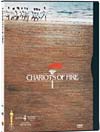
And then there are the “usual suspects,” recent films whose spirituality may be blatant or hidden, but which seem always to come up when Christians talk about film: the Lord of the Rings trilogy, which renders the profoundly Christian truths of J.R.R. Tolkien’s fantasy masterpiece in one of the most widely-seen films of all time; The Matrix, the spiritual film for many who came to faith at the end of the twentieth century, which may read better as a parable of spiritual rebirth than as a Christ-figure allegory; Chariots of Fire, the story of missionary and Olympian Eric Lidell, and one of the first films to portray an evangelical Christian in a positive light; Shadowlands, the definitive portrait of C. S. Lewis and his relationship with Joy Davidman, a relationship which reshaped his theology through love and suffering; American Beauty with its highly unorthodox affirmation of the divine love that banishes fear; Stephen King’s story of faithfulness and friendship, The Shawshank Redemption; and M Night Shyamalan’s brilliant meditation on mortality and forgiveness in the guise of a ghost story, The Sixth Sense, and his even more popular (if more artistically flawed) creatures-from-outer-space fright flick Signs, which is actually about a priest who must come to terms with grief and doubt; and Wings of Desire, the poetically evocative film Wim Wenders made as he came to faith, a vision of angels who long to do more than look into the lives of human beings.
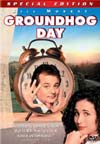
There are classic art films like Bresson’s Au Hasard Balthazar, Dreyer’s Ordet, as well as a sprinkling of Rossellini, Bergman, Fellini and Kurosawa. But there are also wonderful surprises, from comedies like the delightful Groundhog Day (which seems suddenly to be touted everywhere as one of the great spiritual films of all time) to extremely dark and disturbing material like Bad Lieutenant or The Addiction. Lesser-known documentaries like Stevie or Hell House are extremely apt choices for this list, films which may not be widely known but which have been championed at the Arts & Faith board for a long time. Films like 13 Conversations About One Thing or Waking Life offer great fodder for moral and theological musings and discussion, while The Big Kahuna or Amadeus engage directly with explicitly Christian themes like vocation, evangelism and the blessing of God.
In a time when nearly the entire history of cinema is available through the web or at your local cinemaniac video store, and when so much of the cultural dialogue seems to center around the movies, a list like this provides a great starting place for an incredibly rich journey that combines entertainment and eternity for those with ears to hear and eyes to see.
The A&F Top 100
The 2004 Arts & Faith Top100 Spiritually Significant Films are listed (with its year of release and the name of the director) in alphabetical order below. You can also find the list at the A&F website, where you can learn more about the films and join in on the discussion.13 Conversations About One Thing, 2001, Jill Sprecher2001: A Space Odyssey, 1968, Stanley KubrickThe Addiction, 1995, Abel FerraraAmadeus, 1984, Milos FormanAmerican Beauty, 1999, Sam MendesAndrei Rublev, 1969, Andrei TarkovskyThe Apostle, 1997, Robert DuvallAu Hasard Balthazar, 1966, Robert BressonBabettes Gæstebud (“Babette’s Feast”), 1987, Gabriel AxelBad Lieutenant, 1987, Abel FerraraBad ma ra khahad bord (“The Wind Will Carry Us”), 1999, Abbas KiarostamiThe Big Kahuna, 1999, John SwanbeckBlade Runner, 1982, Ridley ScottBreaking The Waves, 1996, Lars von TrierChanging Lanes, 2002, Roger MichellChariots of Fire, 1981, Hugh HudsonCode inconnu (“Code Unknown”), 2000, Michael HanekeCrimes And Misdemeanors, 1989, Woody AllenDays of Heaven, 1978, Terrence MalickDead Man Walking, 1995, Tim RobbinsDekalog (“The Decalogue”), 1987, Krzysztof KieslowskiDersu Uzala, 1975, Akira KurosawaDogma, 1999, Kevin SmithDogville, 2003, Lars von TrierLa Dolce vita, 1960, Federico FelliniThe Elephant Man, 1980, David LynchEternal Sunshine of the Spotless Mind, 2004, Michel GondryFearless, 1993, Peter WeirFight Club, 1999, David FincherLe Fils (“The Son”), 2002, Jean-Pierre & Luc DardenneFuori dal mondo (“Not of This World”), 1999, Giuseppe PiccioniGrand Canyon, 1991, Lawrence KasdanGroundhog Day, 1993, Harold RamisHell House, 2001, George RatliffHenry V, 1989, Kenneth BranaghDer Himmel über Berlin (“Wings of Desire”), 1987, Wim WendersIkiru (“To Live”), 1952, Akira KurosawaIt’s A Wonderful Life, 1946, Frank CapraJean de Florette, Manon des sources, 1986, Claude BerriJésus De Montréal (“Jesus of Montreal”), 1989, Denys ArcandJesus Of Nazareth, 1977, Franco ZeffirelliLe Journal D’un Curé De Campagne (“The Diary of a Country Priest”), 1951, Robert BressonLadri di biciclette (“The Bicycle Thief”), 1948, Vittorio De SicaThe Last Days of Disco, 1998, Whit StillmanThe Last Temptation Of Christ, 1988, Martin ScorseseLife of Brian, 1979, Terry JonesThe Lord of the Rings: The Fellowship of the Ring, The Two Towers, The Return of the King, 2001-2003, Peter JacksonMa nuit chez Maud (“My Night At Maud’s”), 1969, Eric RohmerMagnolia, 1999, Paul Thomas AndersonA Man For All Seasons, 1966, Fred ZinnemannThe Matrix, 1999, Andy & Larry WachowskiMies vailla menneisyyttä (“The Man Without A Past”), 2002, Aki KaurismakiThe Miracle Maker, 2000, Derek W. Hayes & Stanislav SokolovThe Mission, 1986, Roland JofféNema-ye Nazdik (“Close-Up”), 1990, Abbas KiarostamiThe Night Of The Hunter, 1955, Charles LaughtonOffret—Sacrificatio (“The Sacrifice”), 1986, Andrei TarkovskyOn The Waterfront, 1954, Elia KazanOrdet (“The Word”), 1955, Carl Theodor DreyerLa Passion De Jeanne D’arc (“The Passion of Joan of Arc”), 1928, C. DreyerThe Passion Of The Christ, 2004, Mel GibsonPeter and Paul, 1981, Robert DayPonette, 1996, Jacques DoillonThe Prince Of Egypt, 1998, Brenda Chapman, Steve Hickner, Simon WellsLa Promesse, 1996, Jean-Pierre & Luc DardennePunch-Drunk Love, 2002, P.T. AndersonRoma, città aperta (“Open City”), 1945, Roberto RosselliniSansho Dayu (“Sansho the Bailiff”), 1954, Kenji MizoguchiSchindler’s List, 1993, Steven SpielbergSecrets & Lies, 1996, Mike LeighShadowlands, 1993, Richard AttenboroughThe Shawshank Redemption, 1994, Frank DarabontSigns, 2002, M. Night ShyamalanThe Sixth Sense, 1999, M. Night ShyamalanDet Sjunde Inseglet (“The Seventh Seal”), 1957, Ingmar BergmanSmultronstället (“Wild Strawberries”), 1957, Ingmar BergmanSolyaris (“Solaris”), 1972, Andrei TarkovskyStalker, 1979, Andrei TarkovskyStar Wars, The Empire Strikes Back, Return of the Jedi, 1977, 1980, 1983, George Lucas, Irvin Kershner, Richard MarquandStevie, 2002, Steve JamesThe Straight Story, 1999, David LynchSunrise: A Song of Two Humans, 1927, F.W. MurnauSånger från andra våningen (“Songs From the Second Floor”), 2000, Roy AnderssonThe Sweet Hereafter, 1997, Atom EgoyanTender Mercies, 1983, Bruce BeresfordTrois coulers: Bleu, Trzy kolory: Bialy, Trois coulers: Rouge (“Three Colors: Blue, White, Red”), 1993, 1994, 1994, Krzysztof KieslowskiTokyo Monogatari (“Tokyo Story”), 1953, Yasujiro OzuThe Truman Show, 1998, Peter WeirUnforgiven, 1992, Clint EastwoodIl Vangelo Secondo Matteo (“The Gospel According to Matthew”), 1964, Pier Paolo PasoliniVanya on 42nd Street, 1994, Louis MalleLe Vent souffle où il veut (“A Man Escaped”), 1956, Robert BressonLa Vita è bella (“Life is Beautiful”), 1997, Roberto BenigniVredens dag (“Day of Wrath”), 1943, Carl Theodor DreyerWaking Life, 2001, Richard LinklaterWerckmeister Harmonies, 2000, Béla TarrWitness, 1985, Peter WeirThe Year Of Living Dangerously, 1982, Peter WeirYi yi (“Yi Yi: A One and a Two”), 2000, Edward YangZerkalo (“The Mirror”), 1975, Andrei Tarkovsky
Copyright 2004 © Arts & Faith. All rights reserved. Used by permission.



